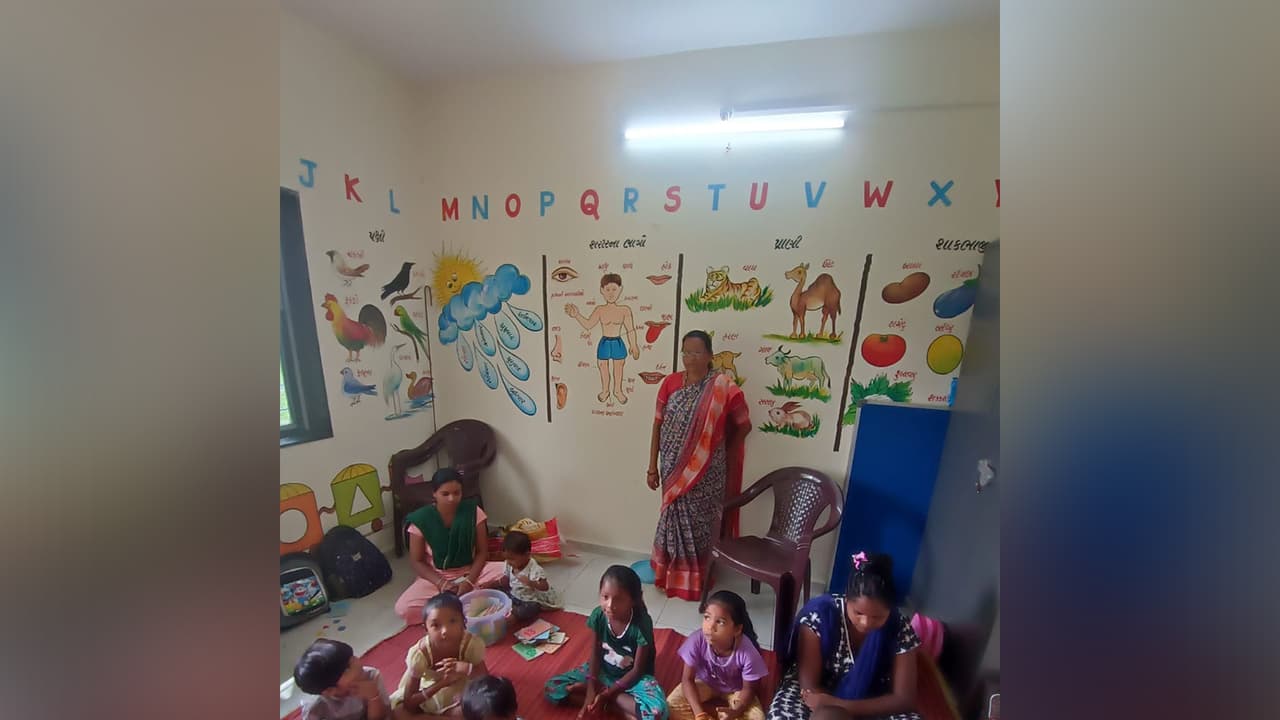Gujarat has been ranked the top-performing state for implementing the PM-JANMAN scheme, aimed at the holistic development of Particularly Vulnerable Tribal Groups (PVTGs). The state received the ‘Best Performing State’ award from President Murmu.
To address the critical needs of Particularly Vulnerable Tribal Groups (PVTGs) and ensure their holistic development, the Central Government, under the leadership of Prime Minister Narendra Modi, launched Pradhan Mantri Janjati Adivasi Nyay Maha Abhiyan (PM-JANMAN). Under the guidance of Chief Minister Bhupendra Patel, Gujarat has emerged as the top-performing state in the country in implementing this initiative. As per the Government of India’s state performance ranking, Gujarat secured the top position nationwide.
On October 17, at the National Conclave held in New Delhi, President Droupadi Murmu presented Gujarat with the “Best Performing State” award for its outstanding implementation of the PM-JANMAN scheme. This recognition reflects Gujarat’s consistent commitment to ensuring development, welfare, and an improved quality of life for tribal communities.
About the PM-JANMAN Mission
Prime Minister Narendra Modi launched the Pradhan Mantri Janjati Adivasi Nyay Maha Abhiyan (PM-JANMAN) on November 15, 2023, observed as Janjatiya Gaurav Diwas, to drive the holistic socio-economic advancement of 75 Particularly Vulnerable Tribal Groups (PVTGs) across 18 states and one Union Territory. The mission focuses on ensuring access to fundamental necessities, including healthcare, education, housing, drinking water, electricity, livelihood opportunities, and improved connectivity, thereby uplifting them socially and economically. In Gujarat, five PVTG communities reside: Kathodi, Kotwalia, Padhar, Siddi, and Kolgha. The State Government continues to actively bridge gaps in essential services and improve their living standards.
Gujarat’s Implementation Strategy
Under the PM-JANMAN Mission, Gujarat has been working to provide essential facilities to the Particularly Vulnerable Tribal Groups (PVTGs). These include housing, road connectivity, piped water, healthcare and education, Anganwadis for women and children, electrification, mobile towers, Van Dhan Vikas Kendras and multipurpose centres. As part of the mission, a detailed household survey was conducted to identify each family’s specific needs and gaps in basic infrastructure. Based on this assessment, targets were set, and facilities are being delivered accordingly to ensure that every beneficiary receives the required support.
Comprehensive Development Across Sectors
Housing and 100% Piped Water Coverage
Under PM-JANMAN, Gujarat has approved the construction of 14,552 houses for PVTG communities across the state. Additionally, 2,803 households that required piped drinking water have now been provided with tap connections, achieving 100% coverage.
Mobile Healthcare and Anganwadi Support
To strengthen healthcare services for these communities, 22 Mobile Medical Units have been deployed, benefiting over 1.25 lakh people so far. A target has also been set to make 67 Anganwadis operational in the coming months to support the welfare of women and children from PVTG communities.
Educational Infrastructure and Electrification
For educational advancement, approval has been granted for the construction of 13 hostels. Under this mission, electricity has been provided to 6,630 households that previously had no access to power. Gujarat has also successfully completed 100% electrification under this mission.
Enhanced Digital and Road Connectivity
To improve mobile network connectivity in PVTG settlements, 36 new mobile towers are planned for construction. Of these, the construction of 21 towers has been completed, and 4G services are now operational in 41 tribal habitations. Additionally, to strengthen road connectivity, approval has been granted for the construction of 45 new roads covering a total length of 94 km. Even small and remote tribal settlements have been included to ensure inclusive development.
Livelihood Generation through Forest Produce
To improve the livelihood and income of the PVTG community, the government has involved them in the primary processing and value addition of forest produce. Under this mission, 21 Van Dhan Vikas Kendras (VDVKs) have been established, benefiting 1,050 people. These centres have generated local employment and boosted income through the value-added sale of forest products.
Community and Skill Development Centres
The government has also approved the establishment of 39 multipurpose centres for the PVTG community to support activities such as skill training, nutrition, health services, adult education, and cultural programmes.
A Collaborative Effort
All these essential facilities are being developed through the combined efforts of eight Government of India ministries: the Ministry of Rural Development, the Ministry of Jal Shakti, the Ministry of Health and Family Welfare, the Ministry of Education, the Ministry of Women and Child Development, the Ministry of Power, the Ministry of Communications, and the Ministry of Tribal Affairs.
(Except for the headline, this story has not been edited by Asianet Newsable English staff and is published from a syndicated feed.)
